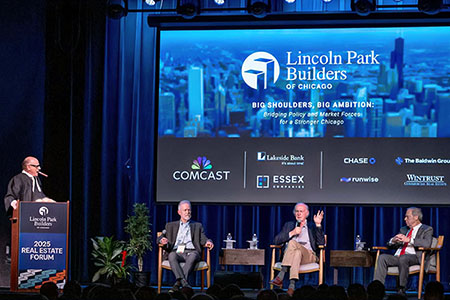111 E Chestnut St
(Above) Lobby of 111 East Chestnut, a 444-unit 56-story Gold Coast condominium, from the building’s website. Jan. 24, 2021 – A condominium association in the Gold Coast has agreed to pay a unit owner $125,000 to settle seven years of litigation resulting from a $500 fine. 111 East Chestnut Condominium Association claimed the unit owner, Michael Boucher, had violated condo rules that prohibit “obnoxious or offensive activity within the association.” Boucher says the fine was retaliation for expressing his opinions about management practices.
The trial court sided with the condo association but the Appellate Court of Illinois on June 14, 2018, agreed with Boucher. The case was returned to a lower court for reconsideration, but COVID-19 intervened, first delaying the trial, then infecting Boucher’s attorney. Dispute started in an elevator in 2011 On August 23, 2011, attorneys for 111 East Chestnut Condominium Association sent a letter to Boucher, accusing him of yelling profanities at an employee of the association who tried to enter an elevator with him. Video of the incident was captured, without audio, by a security camera, and a board member who later viewed it said, “You can almost see the spit coming out of his mouth, he was so furious with her.” Five days later, Boucher received a second letter, saying he had used profanity with another employee while trying to get a replacement key card, an incident in which witnesses said he was “rude and disrespectful.”
Complaints against Boucher include calling a female doorperson a “cocky bitch,” a black unit owner a “ghetto dog,” and a condo board president of Italian heritage a “dago.” Boucher says he is “aggressive with everyone” but denies many of the charges. Settlement was no windfall, says attorney According to Lerum, the settlement amount “wasn’t that significant over and above attorney’s fees.” Lerum says that after the case was sent back for trial in 2020, “there was a lot of litigation that we did not anticipate,” resulting in “litigation fatigue.” The pandemic kept pushing back the trial date and then Lerum himself caught COVID-19 and was out for three weeks.
Lerum says the 2018 appellate court decision in favor of Boucher was “a bright light for unit owners.” “It firmly established that section 18.4(h) of the Illinois Condominium Property Act is enforceable. It basically states than an association cannot prohibit the free exercise of religion or abridge freedom of speech in any respect, or prohibit the right to peaceably assemble, in a general sense. So, by statute, it guarantees First Amendment rights to unit owners,” Lerum said. The appellate court also ruled 111 East Chestnut Condominium Association violated the Illinois Condominium Property Act by refusing Boucher’s request for a copy of the recording of the meeting at which the board considered the misconduct charges, and the association and board members violated their fiduciary duties by withholding from Boucher evidence brought against him. “It should send the message that they can’t be hiding things from unit owners,” said Lerum. “They’re making decisions about other people’s money and other people’s property, and when they do that, they need to be honest. They need to be transparent about what they’re doing, in a way that invites a discussion, invites maybe a difference of opinion so that a resolution can be reached.” Condo association is no place for open discussion, argued defense attorney In her unsuccessful petition asking the Supreme Court of Illinois to reconsider the appellate court ruling, Diane Silverberg, a principal of Kovitz Shifrin Nesbit, said Boucher’s constitutional rights to free speech were not violated, and condo associations should not be discouraged from issuing fines for bad conduct. She said the relationship between a condo association and its owners is “contractual, formalized in reasonable covenants,” and not a forum for “facilitating academic discourse.” The appellate ruling, she said, would be unfair to unit owners who choose to live in an association with an enforceable code of conduct.
|








 Previous story:
Previous story: 








